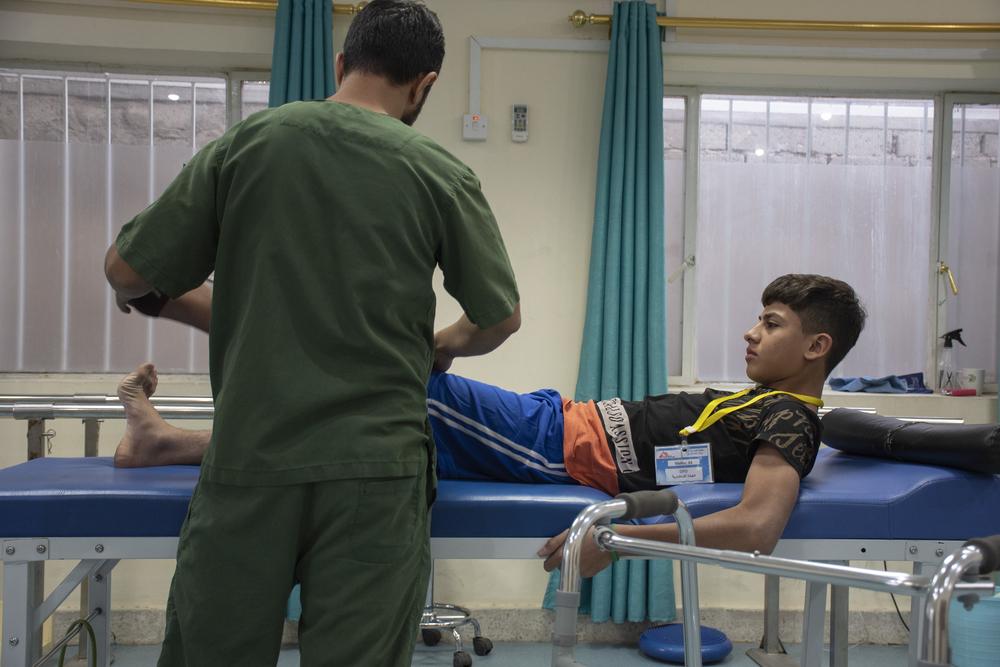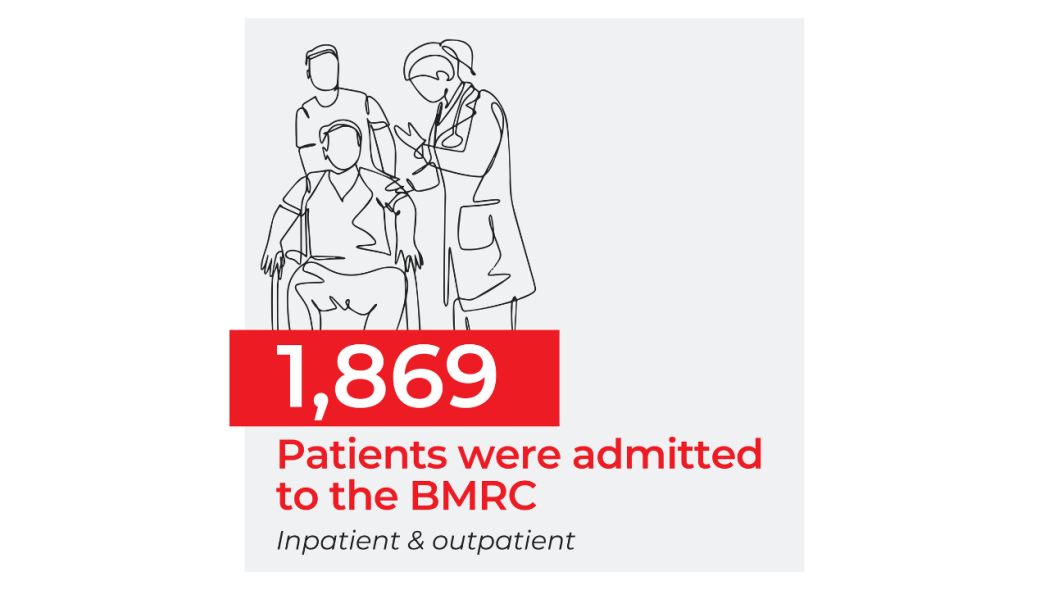Iraq: Providing post-operative care where patients need it in Baghdad

A teenage patient receives physiotherapy in Doctors Without Borders' BMRC. Kadhim was injured on October 27 when a tear gas cannister slammed into his leg during protests in Baghdad. Iraq, 2019. © Nabil Salih/MSF
“As the context of violence has changed since the opening of the BMRC in 2017 and now only 17 % of our patients are violence-related cases, to decentralize the post-operative care that we provide at the level of the inpatient department to the governmental hospitals is the logical next step”, says Hani Almalihi, Head of Mission in Baghdad.
The inpatient department (IDP) at the BMRC was closed. The out-patient department at BMRC remains, still offering free medical services such as physiotherapy, nursing care, and mental health consultations to patients. And in cooperation with the Medical City Orthopedic Hospital in Baghdad decentralization has started.
We conducted trainings and discussions with the hospital’s staff on the importance of physiotherapy in post-surgical care. By sharing our knowledge and experience, likewise, ensuring the capacity-building process with Ministry of Health staff in handling this model of care, we will reach significantly more patients.Hani Almalihi, Head of Mission
In addition, Doctors without Borders has conducted introductory presentations on "Early Rehabilitation following orthopedic surgeries" at public hospitals in Baghdad, including Al-Wasiti, Al-Kindi and Alkarkh. “These Introductory presentations are an invitation for future collaboration between BMRC and public hospitals to endorse post-operation early rehabilitation as a model of care”, explains Hani Almalihi.
The organization highlighted how post-operative early rehabilitation is crucial to prevent health complications and improve the patient's quality of life. Furthermore, the experts emphasized the advantages of extending the model of care to a multidisciplinary approach that involves physiotherapy, nursing care and mental health.
Baghdad Medical Rehabilitation Center activities in figures since 2017



Doctors Without Borders opened its Baghdad Medical Rehabilitation Centre (BMRC) project in August 2017 to provide care for victims of violence in need of physical and mental rehabilitation. As the number of patients affected by violence have gradually reduced with the decrease of violent events in Iraq, the admission criteria were expanded to include people injured in traffic accidents. The team at BMRC provides early comprehensive post-operative care services to people injured in their upper and lower extremities, including medical care, nursing care, physiotherapy and mental healthcare, as well as treatment for people affected by antibiotic-resistant infections.
Since 2017, 1,869 patients were admitted to the BMRC (inpatient and outpatient), the teams held 78,672 consultations (medical, nursing and physiotherapy) and conducted 13,119 mental health sessions.